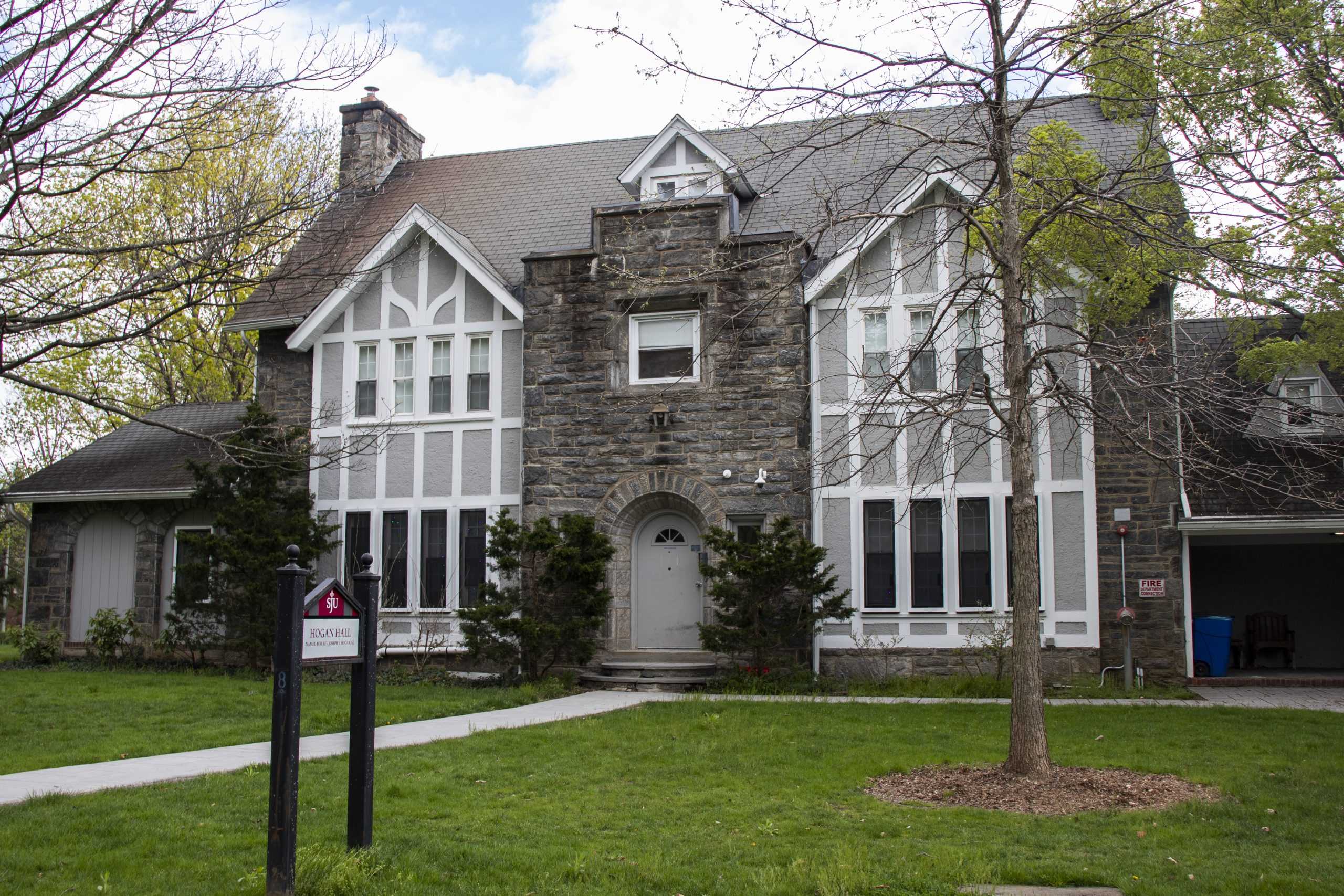St. Joe’s will now be offering an on-campus residential option for students in recovery and committed to living a sober lifestyle starting in spring 2021, according to a March 31 email from the Office of Residence Life.
As a facet of the university’s Collegiate Recovery Program (CRP), the Recovery Residence will be in Hogan Hall, located on Lapsley Lane. According to the CRP website, the Recovery Residence will serve as a welcoming “community and gathering space for our larger CRP, serving as a hub of social and therapeutic programming.”
Alex Copeland, CRP manager at St. Joe’s, will be living in Hogan and providing guidance to the students within the community.
“We’re going to offer greater access to recovery support and therapeutic resources,” Copeland said. “We’re going to have events, activities and workshops for our students and a lot of things for our residential students, our community members and even for all St. Joe’s students to have access to sober activities and sober events along with our resource guidance and treatment assistance.”
Copeland is working alongside Leon Gellert, an alcohol and other drug therapist and clinical advisor at Counseling and Psychological Services (CAPS) and advisor at CRP. Gellert said building this community in Hogan will allow for members to have a fuller college experience and will help to create a supportive environment for students in alcohol and drug recovery.
“It’s going to help destigmatize recovery, which will hopefully help students who are thinking about it or going through it but aren’t talking about it to open up a little bit more,” Gellert said.
Gellert said the residence will run recovery-related programs and activities such as yoga, art therapy, dance movement therapy and other alternative forms of therapy for students to find what works best for them.
“Some of it is going to be open to everyone, and some of it might be specifically for students who are living in the residence,” Gellert said. “The mutual aid meetings are always going to be open, where maybe some of the process groups will be more closed because it’s more about processing things that are happening in the residence.”
For help in developing the CRP, the university is partnering with the Independence Blue Cross Foundation. Evan Cantiello, senior program specialist at the Independence Blue Cross Foundation, said the foundation is focusing on establishing and improving collegiate recovery programs.
“We know it’s a really challenging time for schools to be focusing on new programmatic efforts, and with COVID-19 I think the evidence is there to support that the global pandemic is exacerbating the condition of substance use disorder in a lot of people,” Cantiello said. “There’s an opportunity to support students in recovery in a unique way.”
According to the Centers for Disease Control and Prevention (CDC), 13% of U.S. adults started or increased substance use as of June 2020.
Cantiello said their hope, as they continue to partner with new schools, is that they can gain some momentum so as they continue their work, more schools will continue to reach out with a focus on the region in southeast Pennsylvania.
“The great thing about St. Joe’s is that we probably consider them one of the leaders in Collegiate Recovery programming in our region,” Cantiello said. “They’re very far along the spectrum of resources being provided for students in recovery.”
The Recovery Residence will be the central hub of the university’s CRP, according to Marci Berney, director of the Office of Student Outreach & Support and a case manager at St. Joe’s. Berney said the university has been looking to open a Recovery Residence for six years and the addition of Copeland and Gellert led to it becoming a reality.
“Both of those positions are essential, being able to support both the students living in the residence but also help with the planning for future support and events,” Berney said. “We’ve used this year, particularly this spring semester, as a planning semester and we focused a bit more on our Collegiate Recovery Program in general.”
Berney said the university is ready to welcome the first group of students to Hogan in the fall 2021 semester. Hogan, which was renovated earlier this year, has a capacity of 12 students with single and double person dorm-style living spaces.
According to the email from Residence Life, students looking to become a member of the Recovery Residence must email [email protected] to express their interest. Students will be sent an electronic application form after reaching out and will then be interviewed to help advisors get to know each member more and provide additional details about the program.
“We’ve already had a few students who have expressed interest, so our application processes on a rolling basis,” Berney said. “That is available at any time and will continue until the house is at capacity.”














































